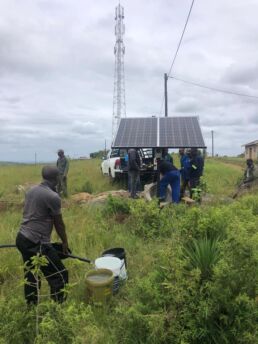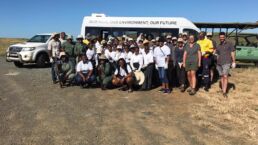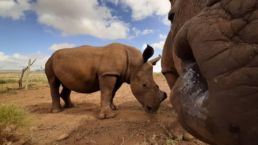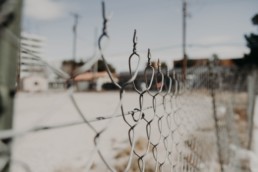Water Insecurity
Water Insecurity
Global water insecurity, or water scarcity, can be understood in several ways. UN Water defines water insecurity as, “The capacity of a population to safeguard sustainable access to adequate quantities of acceptable quality water for sustaining livelihoods, human well-being, and socio-economic development, for ensuring protection against water-borne pollution and water-related disasters, and for preserving ecosystems in a climate of peace and political stability.”.
Water security impacts most, if not all, aspects of life. From agriculture to food preparation to personal hygiene to public health to energy to cultural or religious activities and recreation, water touches all aspects of life. In this era of climate change, water can be life-affirming and life-destroying. Too much water at the wrong time or too quickly can cause unmanageable and devastating floods causing disease outbreaks, ruining crops, and destroying homes. Too little water can cause drought, desertification, and increased conflict for scarce resources. Increased coefficients of variation (differing from the average) can cause crops to be ruined by surprise rainfalls following a harvest or poor harvests due to less rainfall than normal.
Most horrifyingly, every 90 seconds a child under 5 years old dies because of lack of access to clean water and sanitation.
The Water-Energy-Food (WEF) nexus is of particular interest to development practitioners as we view these issues not as siloed but as deeply interconnected. Issues in water security directly affect food and energy security.
Cultivating global water security requires a balance of localized action, led by local leaders with the global support of knowledge sharing and finance for improvements. COVID-19 will have deep impacts on long-term water security as budgets and policies are redirected from long-term water systems to immediate life-saving support. The complexity of the challenge of water security and its immediacy should not turn people away from this issue; on the contrary, solutions to water insecurity exist — it’s a matter of amplifying, connecting, and financing these solutions at a scale that will drive impactful change.
Uthingo Foundation
Uthingo Foundation
To enable communities and wildlife in Southern Africa to coexist with reduced/no conflict by means of empowerment, education and investment.
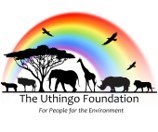
Zululand, South Africa
About Uthingo Foundation
The Uthingo Foundation, is a charitable foundation dedicated to advancing the connectivity and understanding of the public in the conservation, protection and improvement of the physical and natural environment of wilderness areas in Southern Africa. With the dedication of our volunteers, and partners, we strive to provide structured education, sports and empowerment programmes to create a positive attitude towards wildlife and its conservation.
What achievement are you most proud of for your organisation?"Definitely installing the borehole to Emabhokisini Village – from the community having to take on a steep hill to transport dirty, infested water they shared with livestock to now having access to fresh, clean water, improving their livelihoods, health and wellbeing. It was our first project and we were so proud to have completed it with the support and work of the local community". - Marumo Nene
Practice Project Page
Zululand Rhino Orphanage
Passionately preserving, protecting and nurturing the land and its wonderful wildlife for future generations.

Zululand Region
About this project
Our mission at the Zululand Conservation Trust is a commitment to the conservation of endangered species whilst maintaining and supporting partnerships with neighbouring communities. The Trust was established in 2011 to achieve a common dream between a group of devoted wildlife enthusiasts. Based in northern Zululand, we recognise the fundamental need to involve, empower, educate and support local communities, in order to achieve effective and lasting conservation.
“For us, conservation is more than just a passion or a calling. It is a way of life.We have made our home in the heart of the beautiful Zululand region. Here, we are dedicated to sustaining the land, conserving endangered species as well as uplifting local communities through partnerships, projects and programmes.”
“For us, conservation is more than just a passion or a calling. It is a way of life.We have made our home in the heart of the beautiful Zululand region. Here, we are dedicated to sustaining the land, conserving endangered species as well as uplifting local communities through partnerships, projects and programmes.”
Windly Conversations
Forced Migration
Forced Migration
Today, one out of every 110 people worldwide is displaced. While we may not be able to directly stem the root causes of violence in many parts of the world, we can support people on-the-ground working tirelessly to help displaced persons regain dignity, safety, and opportunity in their lives.
When we refer to displaced persons or forced/involuntary migration, this includes people displaced within their country’s borders, refugees or asylum seekers in foreign countries, and stateless persons. People can be displaced by human conflict such as wars or genocide, or natural conflict such as cyclones, tsunamis or rising waters due to climate change (check out this documentary on Climate Refugees if you’re keen to learn more).
Forced migration or involuntary migration is a massive challenge facing the world’s global economy and response systems; it tests the cultural, political, and economic structures in place to manage an influx of people.
The modern refugee today is different from the type of refugee international organizations were typically founded to manage, in that they often exist in a limbo state of seeking asylum or displacement for long periods of time. If 25,000 or more people are displaced for over 5 years, this is called a protracted refugee situation – and is increasingly the norm.
The politics of migration evoke extreme emotions because of the complexity of the issue and the stress a massive influx of people puts on existing systems in host countries, host cities, or organizations running refugee camps.
Our understanding is that the modern displaced person’s main objective is to return home and to return to a sense of normalcy including security and opportunity and as humans with a sense of compassion and belonging to a global community, it is without question that we lend support to our brothers and sisters around the world.
Our solutions page provides many suggestions to support innovative solutions to the biggest humanitarian crises of our time.
Click here or here for additional resources and to learn more.

